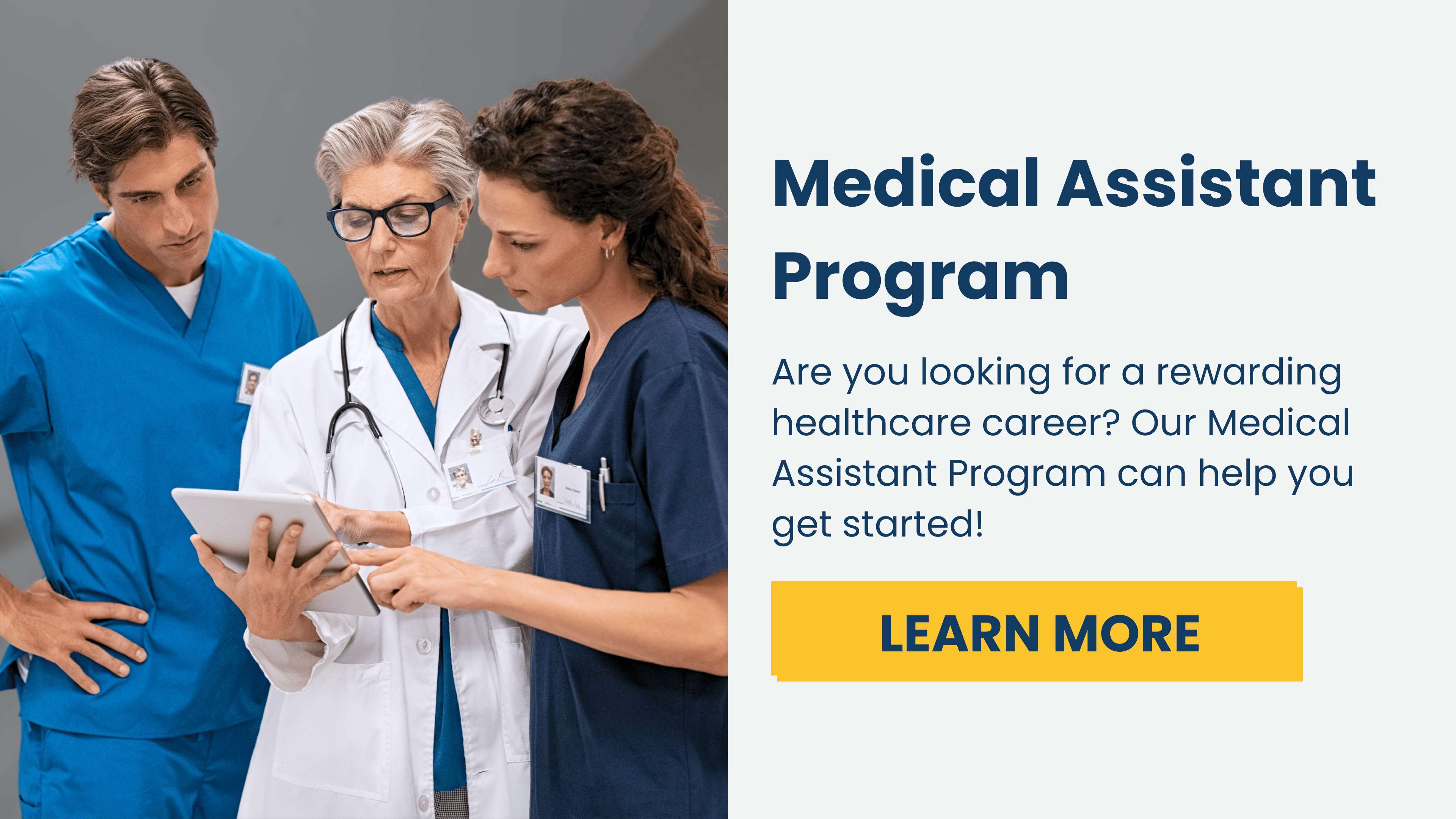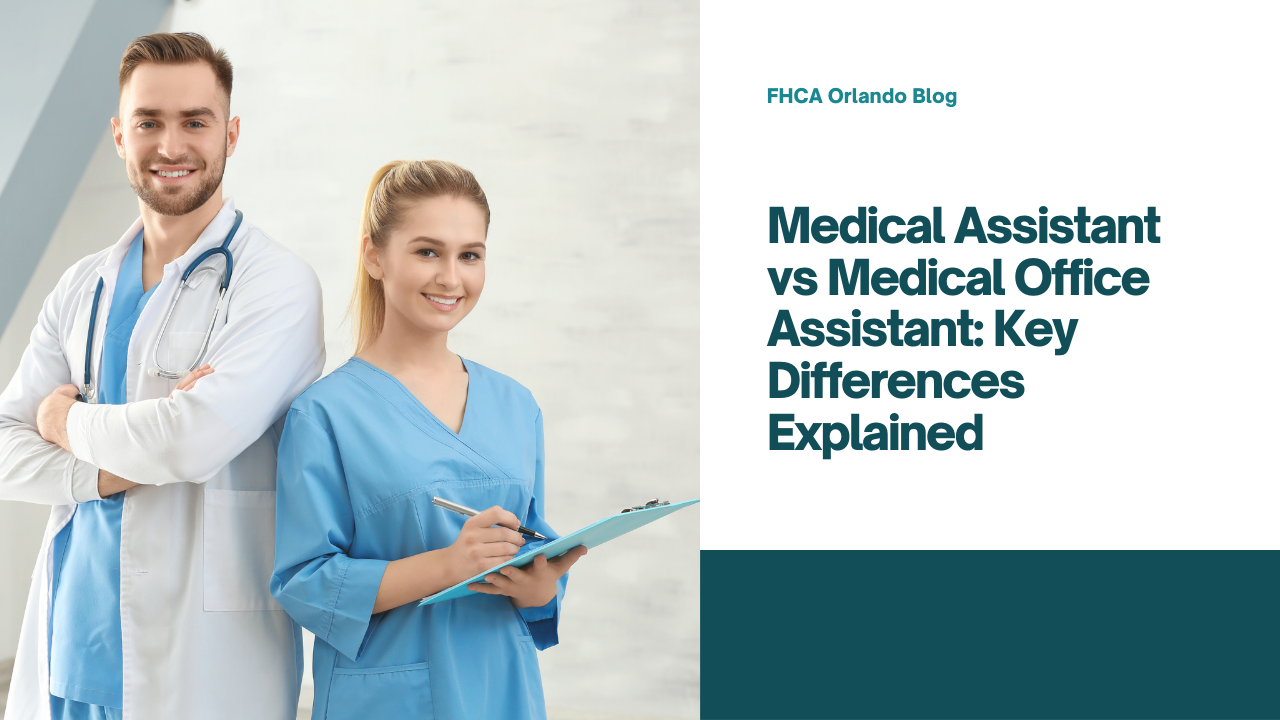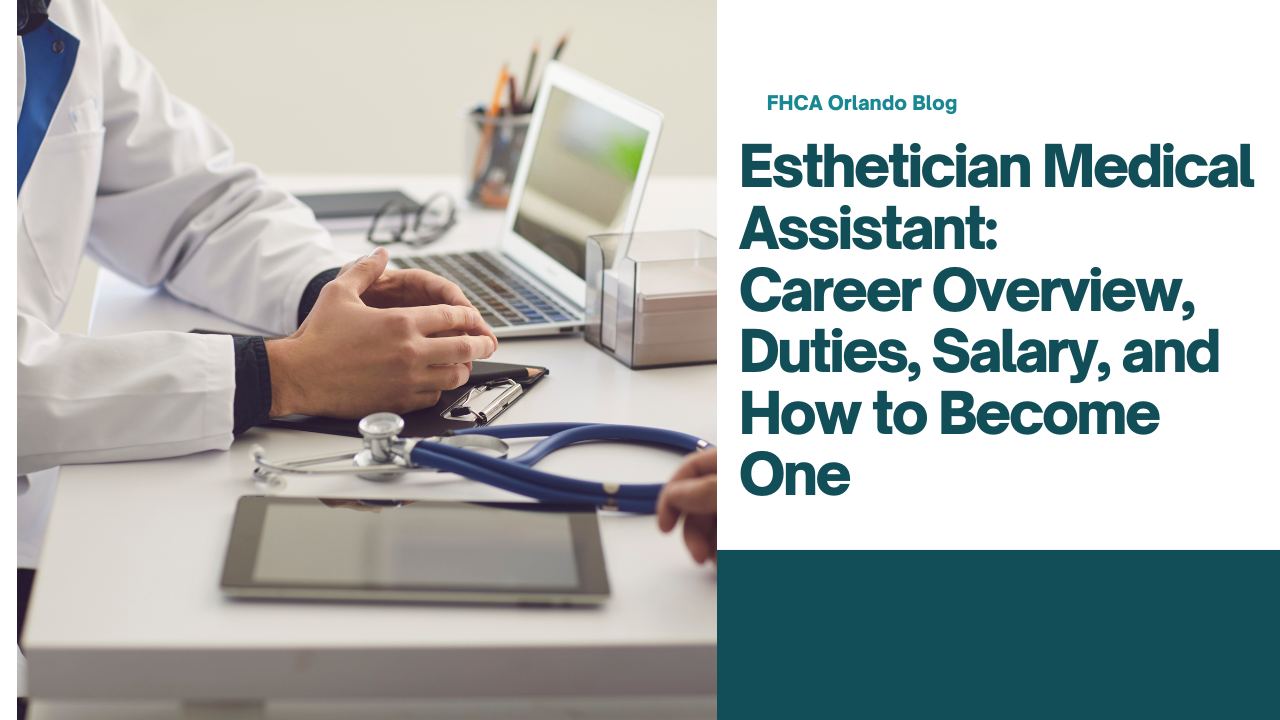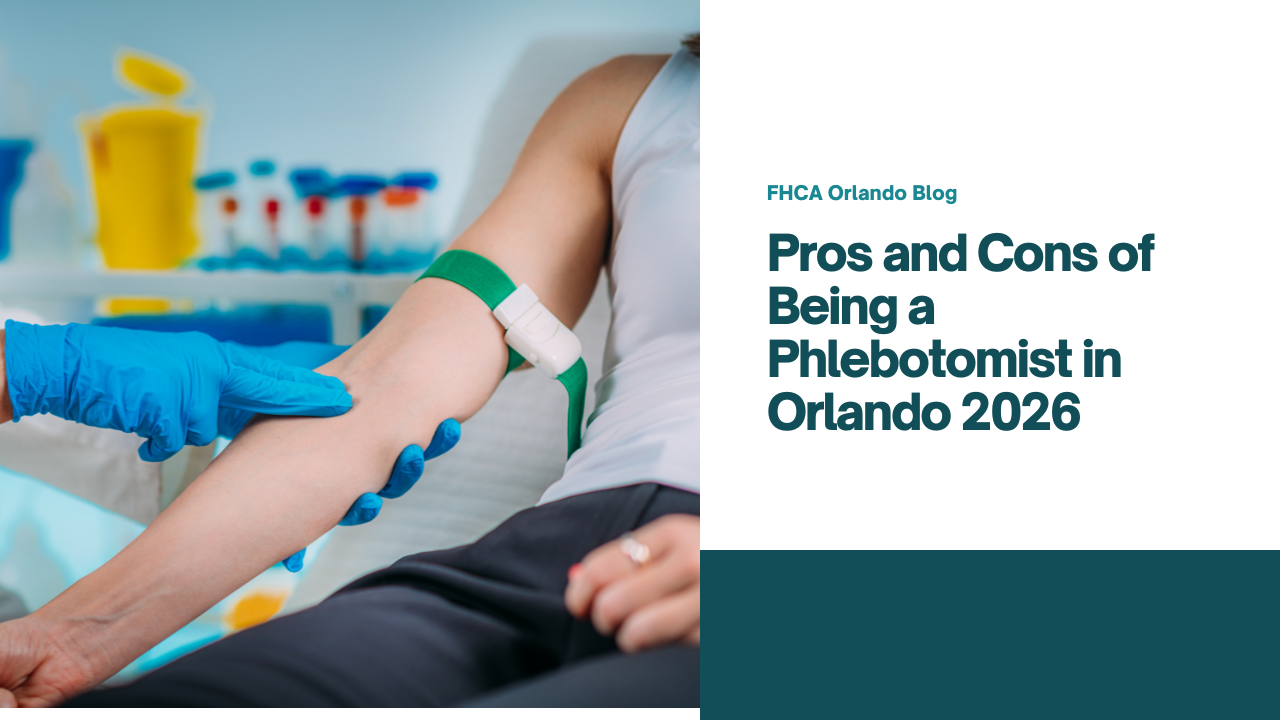What do you learn as a medical assistant?
Sep 10, 2025
Training to become a medical assistant means mastering clinical procedures, administrative tasks, and patient care. You’ll learn to take vital signs, give injections, perform basic wound care, and measure patients accurately, all essential for real-world healthcare settings.
Along with hands-on skills, you'll build confidence in patient communication, record management, and office support. If you’ve ever wondered can you become a medical assistant without school, this guide explains what formal training actually provides.
Table of contents
- What do you learn in the medical assistant program at FHCA?
- Overview of the medical assistant curriculum
- How is our training program structured?
- FAQs about what you learn in medical assistant training
- Ready to start learning real-world healthcare skills?
What do you learn in the medical assistant program at FHCA?
At FHCA our medical assistant program Orlando equips you with the clinical, administrative, and patient care skills needed to thrive in healthcare. You’ll gain the knowledge and practical experience needed to deliver excellent patient care and support healthcare teams in a variety of medical settings.
Clinical instruction and skills
Our medical assistant program equips you with essential clinical skills to support nurses, physicians, and the entire healthcare team in various settings, in clinics, hospitals, or outpatient centers. You’ll learn how to take vital signs such as blood pressure and pulse, perform blood draws, and carry out other core medical assistant duties with precision and confidence.
These versatile skills can also help you explore different roles in healthcare, like comparing the path of a medical assistant vs dental assistant, as you define your professional goals.
Real patient care scenarios and lab practice
Training includes lab-based simulations where you perform lab testing, practice venipuncture and the use of medical tools, and navigate patient concerns in controlled environments. These real-world drills prepare you to enter a doctor’s office or healthcare facility confidently.
Overview of the medical assistant curriculum
The medical assistant curriculum offers a balanced mix of clinical training, administrative instruction, and patient care education. This well-rounded approach ensures you’re prepared to handle the diverse responsibilities of the role in any healthcare setting.
If you're just getting started, it's helpful to understand how to become a medical assistant to know what steps to take before enrolling.
Topics covered in clinical classes
The student will study key medical knowledge areas such as anatomy, infection control, pharmacology, and reviewing medical history. The curriculum also covers managing medical records, scheduling appointments, and using electronic health systems, essential skills for any future medical assistant.
In addition, the future MA will develop essential medical assistant skills like charting patient information, preparing exam rooms, and assisting with minor procedures, building a strong foundation for success as a healthcare professional.
Healthcare procedures and vital signs
The student learns how to measure and record vital signs with accuracy and consistency. Training also includes assisting in clinical procedures such as EKGs, applying sterile techniques, and performing minor patient care tasks, all essential responsibilities that help keep medical practices running efficiently.
Medical Assistant Skills
Medical assistants in Florida are trained to handle a wide range of administrative and clinical tasks, including:
- Measuring and recording vital signs
- Listening to patients with empathy
- Providing excellent customer service
- Using critical thinking to make decisions
- Understanding medical assistant terminology
- Managing medical billing processes
- Answering and directing phone calls
- Scheduling and confirming appointments
- Administering medications (under supervision)
- Giving injections
- Applying wound dressings
- Drawing blood
- Collecting urine samples
- Removing sutures
- Performing EKGs
- Preparing and cleaning exam rooms
- Interviewing patients before visits
- Relaying information between patients and physicians
- Maintaining and organizing medical supplies
- Demonstrating a solid knowledge of medical terminology
Clinical Skills
- Measure vital signs (heart rate, BP, respiratory rate, temperature)
- Perform CPR (BLS certification usually required)
- Remove sutures safely and report wound concerns
- Apply dressings for wound care
- Draw blood (phlebotomy) for lab tests
- Collect urine and stool specimens
- Perform EKGs to record heart activity
Administrative Skills
If you're wondering how these responsibilities differ from similar roles, check out this breakdown of Medical assistant vs medical administrative assistant.
- Schedule and manage patient appointments
- Record visit notes and vital signs accurately
- Call patients for billing reminders or payment plans
- Verify insurance coverage and obtain authorizations
- Maintain organized and clean work areas
These tasks reflect the daily responsibilities of an administrative medical assistant, whose role is essential in keeping healthcare offices running smoothly.
How is our training program structured?
Our Medical Assistant training program is carefully designed to give you a complete, hands-on learning experience. It’s divided into two essential parts: classroom theory and supervised clinical training.
This structure ensures you gain both the knowledge and the real-world skills you need to succeed in the healthcare field.
Clinical simulations and interactive practice
The student participates in clinical training for daily duties as a medical assistant with scenarios that replicate real patient visits, from greeting patients to explaining procedures and assisting with documentation. This immersive training mirrors the approach of many medical assistant programs, but FHCA places a stronger emphasis on hands-on learning than is typically found in community college settings.
FAQs about what you learn in medical assistant training
This section answers common questions about what students learn in medical assistant training and highlights how your medical assistant career can grow with the right skills and education.
Will I learn to draw blood and take vital signs?
You’ll practice venipuncture, collecting lab samples, and measuring vital signs, core clinical tasks for a certified medical assistant.
Are administrative skills included in the training?
You’ll learn front-office operations like scheduling appointments, updating medical records, and working with healthcare professionals to keep the healthcare facility running efficiently.
Do I need experience before starting the program?
FHCA’s program is designed for beginners; everything from medical assisting basics to advanced patient care is taught in class and labs.
What kind of support will I get during training?
You’ll receive support from knowledgeable instructors who guide every step. They help you prepare for the certification exam and build the skills of a good medical assistant.
Ready to start learning real-world healthcare skills?
Your future in healthcare starts with hands-on training and real support. FHCA’s program for medical assistant equips you with the skills, confidence, and guidance to begin a rewarding career.
Enroll now and start building your real-world healthcare skills today.









